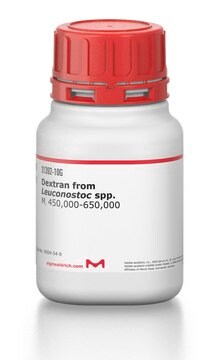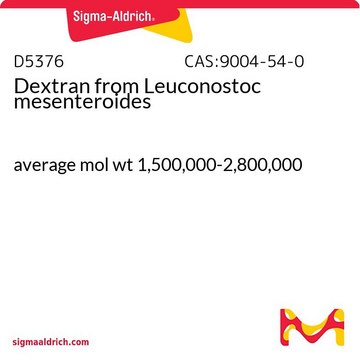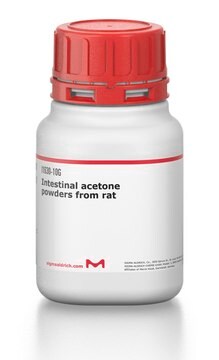D9909
Dextran Sucrase from Leuconostoc mesenteroides
lyophilized powder, ≥100 units/mg protein
About This Item
Productos recomendados
biological source
bacterial (Leuconostoc mesenteroides)
Quality Level
form
lyophilized powder
specific activity
≥100 units/mg protein
composition
Protein, ~15% Lowry
solubility
H2O: soluble 0.9-1.1 mg/mL, clear to slightly hazy, colorless to light yellow
storage temp.
−20°C
General description
Application
- in immobilization on shirasu porous membrane (SPG) for dextran production
- in the enzymatic synthesis of dextran nanoparticles at various pH range
- in the immobilization with hydroxyapatite for dextran production
Biochem/physiol Actions
Quality
Unit Definition
Physical form
Storage Class
11 - Combustible Solids
wgk_germany
WGK 3
flash_point_f
Not applicable
flash_point_c
Not applicable
ppe
Eyeshields, Gloves, type N95 (US)
Certificados de análisis (COA)
Busque Certificados de análisis (COA) introduciendo el número de lote del producto. Los números de lote se encuentran en la etiqueta del producto después de las palabras «Lot» o «Batch»
¿Ya tiene este producto?
Encuentre la documentación para los productos que ha comprado recientemente en la Biblioteca de documentos.
Los clientes también vieron
Nuestro equipo de científicos tiene experiencia en todas las áreas de investigación: Ciencias de la vida, Ciencia de los materiales, Síntesis química, Cromatografía, Analítica y muchas otras.
Póngase en contacto con el Servicio técnico







